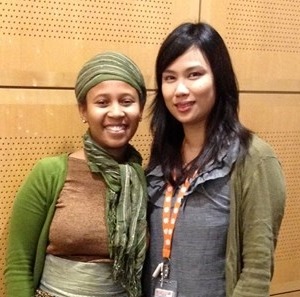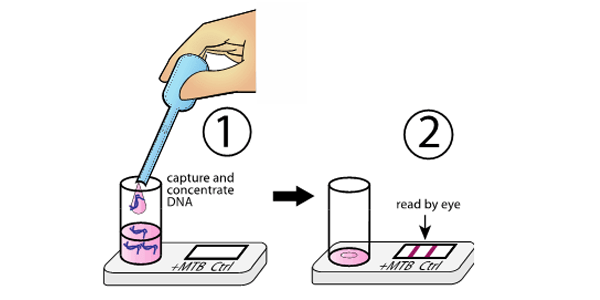An interdisciplinary research team led by PIs Drs. James Lai and Barry Lutz of UW Bioengineering and UW tuberculosis researcher-clinician Dr. David Horne has received the 2014 Global WACh/W.H. Coulter Foundation Seed Grant to develop a point-of-care diagnostic device to diagnose TB from urine samples.

Left: Dr. Diana Marangu (UW MPH student, Pediatrician from University of Nairobi, Kenya) Right: Nuttada Panpradist (UW Bioengineering PhD student)
The research team formed as a result of a project that UW BioE Ph.D. student Nuttada Panpradist and classmate Dr. Diana Marangu (pediatrician and UW Global Health Master of Public Health student) developed during the course GH 590 “Bioengineering Solutions to Improve the Health of Women, Adolescents and Children” in winter quarter 2014. This course was initially developed by Dr. Jennifer Slyker of UW Global Health and UW BioE’s Dr. Kim Woodrow, and led this year by Drs. Brandon Guthrie of UW Global Health and Kim Woodrow. As a final project, the course pairs students to develop a proposal on a global health topic. The two students realized the potential impact of their project idea to improve the lives of TB patients and decided to seek help from PIs to apply for grant funding.
The team will develop a rapid, instrument-free device for diagnosing TB from urine samples that is appropriate for use in low-resource settings. The device addresses the critical need for a way to diagnose TB that is quick, effective, portable and affordable. The researchers hope that their device will offer a feasible alternative to expensive, resource-intensive methods used currently to diagnose TB.
Excited that her class project resulted in a funded grant, Nuttada encourages fellow students to not hesitate to go above and beyond coursework assigned by their professors. “Sometimes that may turn into something more than one can expect,” she says, suggesting the possibilities available to students for translating ideas introduced in the classroom into innovative research.
Reflecting upon her success finding PIs and securing funding for the proposal to move the project forward, Nuttada owes her achievement to the strength of the BioE graduate curriculum. From her perspective, the curriculum provides students with the tools necessary to become independent investigators. In Nuttada’s case, she learned “tremendously” from the topics covered in the curriculum’s core courses, particularly how to critically review research literature and write grant proposals.



